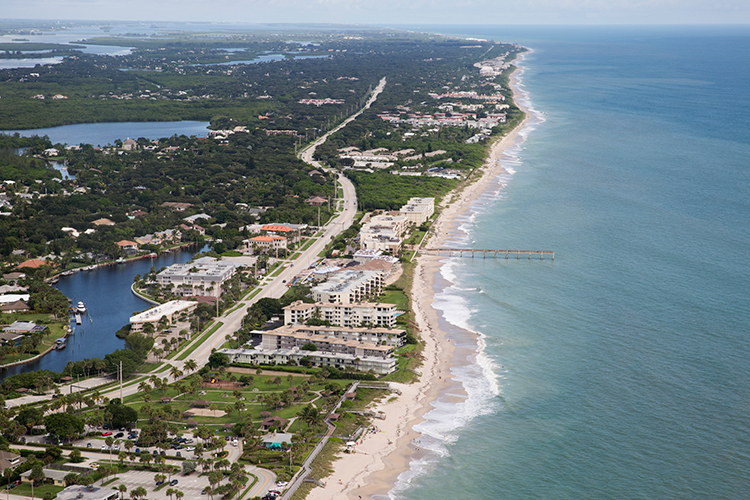
The Indian River Shores Town Council wants to make sure Florida City Gas has all the required permits in hand to build a pipeline to the barrier island before the town commits to anything.
If all goes according to plan, Florida City Gas will extend its existing mainland gas pipeline through Wabasso, running it eastward and under the Indian River Lagoon to the island.
Then one branch of the pipeline will bring gas north to Windsor and the Town of Orchid, while another span of pipe drives southward through Indian River Shores and into the City of Vero Beach, to eventually fuel the island business district.
How long will that take? Previously, highly optimistic Florida City Gas officials hoped to be finished by the end of 2022. Now the pipeline contractor says it hopes to start within three months, that it will take one year to lay the pipeline up A1A, and up to 18 months to complete the steel pipeline boring into coquina under the river near the Wabasso Causeway, at a depth of 15 feet under the mud line.
“I’m uncomfortable because you don’t have the permits,” Shores Councilwoman Mary Alice Smith told Florida City Gas at a recent meeting.
The use of temporary natural gas trailers – such as the pilot project in The Strand community – to bring service to Shores residents before the pipeline is completed also drew expressions of concern. At present, the trailers can only serve private communities with private roadways like The Strand.
“I don’t think we would want to see temporary trailers on the island for three, four or five years,” said Shores Mayor Brian Foley. “Have you seen those kind of delays?”
Florida City Gas Director of Development and Business Strategy Marc Seagrave said he has been in the natural gas business for 34 years and he has not seen such delays in Florida.
Councilman Chris Hendricks expressed concern over roads lined with well-established oak trees such as in Marbrisa. Seagrave said the company generally works within the utility easements and has been careful to respect heavily treed areas in the past. “We serve Coral Gables, and if there was ever a tree-lined city it’s Coral Gables,” Seagrave said.
Pebble Bay Estates resident Patty Gundy spoke after the Florida City Gas presentation, saying that she doesn’t understand why saving money (over propane) is worth running lines through every community in the town, and disrupting the trees.
Seagrave said Florida is a very friendly state to natural gas, from a regulatory standpoint.
Once needed permits are in place, Florida City Gas can come back to the Shores Town Council with proposed terms for a franchise agreement, which would let the gas company use the town’s rights of way and utility easements.
Seagrave touted natural gas as 100 percent domestically produced, much cheaper than propane, and a reliable alternative power that will almost always stay on during and after a hurricane to fuel whole-home generators, or gas appliances.
He said island residents want natural gas, judging by the overwhelmingly positive response Florida City Gas got from the 5 percent of people who responded to a direct-mail solicitation of 10,000 barrier island residences.
Seagrave said that for a direct-mail poll, that’s a really good response.
Gas service to community clubhouses, swimming pools and other common areas would be first, followed by condos, townhomes and single-family homes. But ultimately, each community’s property owners’ association or HOA would decide whether or not to allow Florida City Gas to run lines within the neighborhood.
“We commonly serve those who request it,” Seagrave said.



